
Message from June 30, 2013.

Message from July 7, 2013.

Message from July 14, 2013.

Message from July 28, 2013.

Message from August 4, 2013.

Message from August 18, 2013.

Message from August 25, 2013.

Message from September 1, 2013.

Message from September 8, 2013.

Message from September 15, 2013.

Message from September 22, 2013.
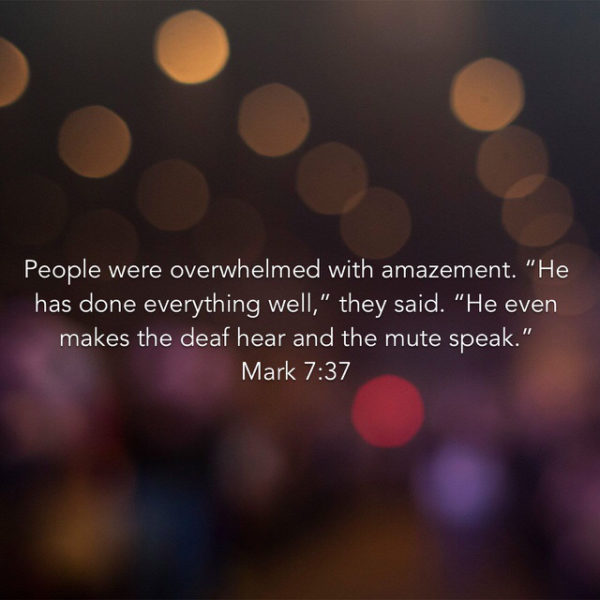
Message from September 29, 2013.
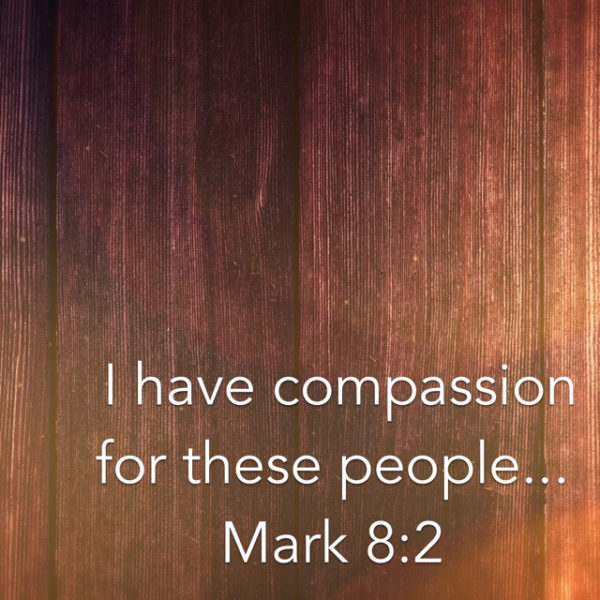
Message from October 6, 2013.

Message from October 13, 2013.

Message from October 20, 2013.
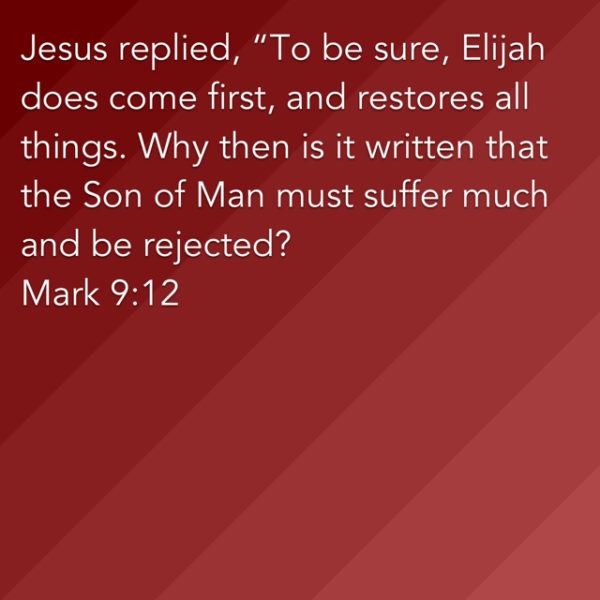
Message from October 27, 2013.

Message from November 3, 2013.

Message from November 10, 2013.
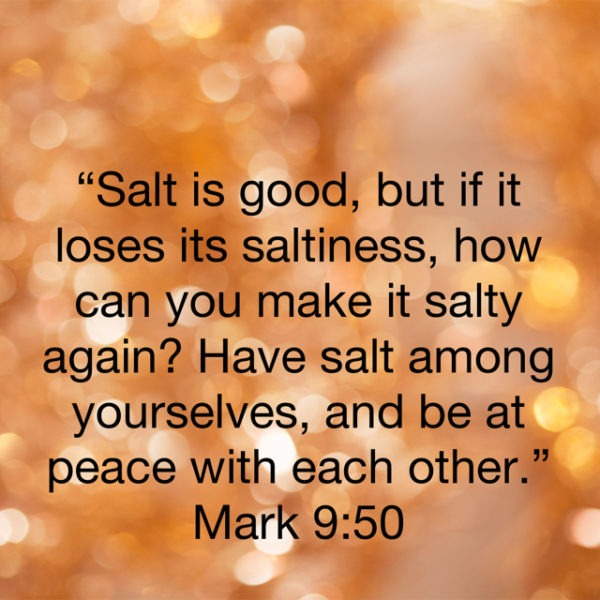
Message from November 17, 2013.

Message from November 24, 2013.

Message from December 1, 2013.
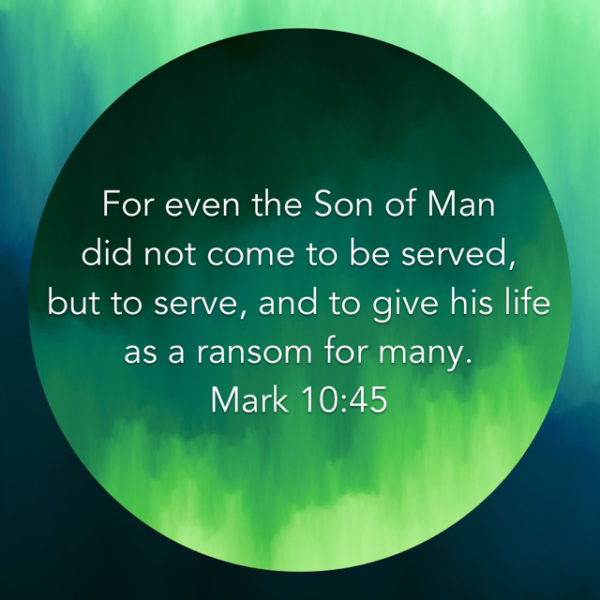
Message from December 15, 2013.

Message from December 22, 2013.

Message from December 29, 2013.

Message from January 5, 2014.
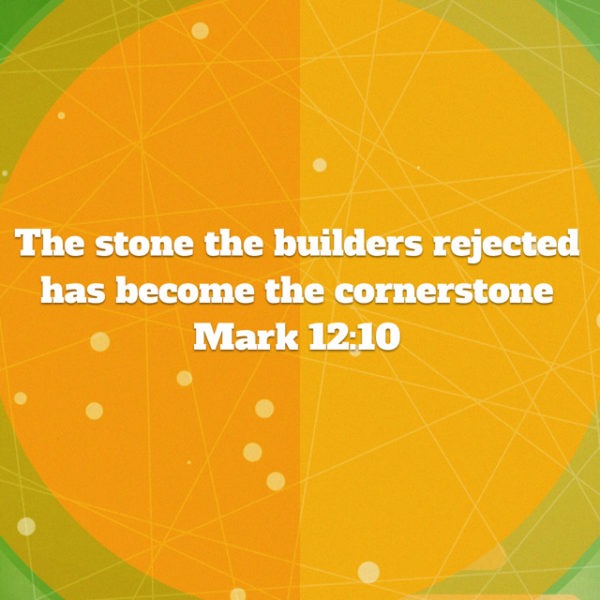
Message from January 12, 2014.

Message from January 19, 2014.

Message from January 26 ,2014.

Message from February 2, 2014.

Message from February 16, 2014.

Message from February 23, 2014.
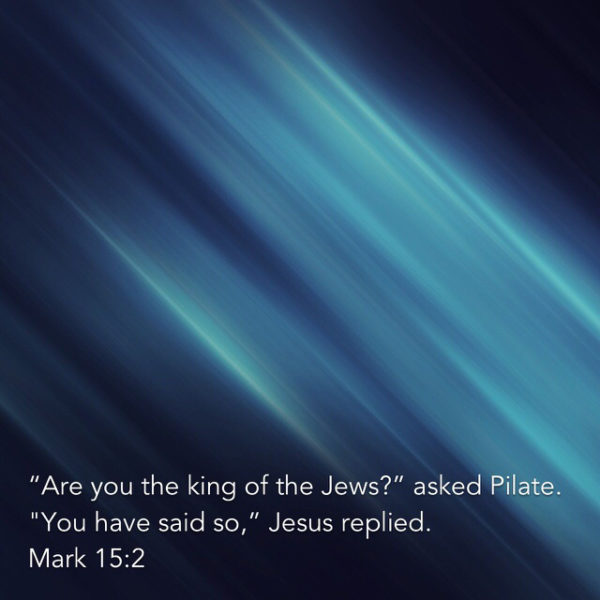
Message from March 2, 2014.

Message from March 9, 2014.
Okay, if you would, please, open your Bibles to Mark Chapter 15, and we finished at verse 20 last week. Jesus is in the trial phase of His day — actually, just finished up the trial phase by going through the Roman court system for a non-Roman citizen. It’s not very pleasant for those that are not Roman citizens when they stand trial. And we saw how Jesus was treated. First and foremost, Pilate knew that Jesus was innocent. He knew that the chief priests and the elders brought Him to him out of envy because Jesus drew bigger crowds than they could, Jesus spoke with more authority than they had, and Jesus was able to move hearts where they were not. And even though it seems that he sought to release Jesus — he offered them a choice: they could take Barabbas, or they could take Jesus. They chose Barabbas. Because it was a custom at the Passover that Pilate would hand a prisoner over. The thing is, Pilate had complete authority over Jerusalem at this time. Pilate could’ve told the chief priests, “This man is innocent. I’m releasing him, and you won’t touch him. Because if you do, you will find your moment before this court.” He could have easily released Jesus. See, Pilate is in a hard situation, though — the Jews, the Zealots in particular, were always causing uprisings. He did not want an uprising just before their Passover. He didn’t want to give them a reason to rebel at their holy day. And so he appeased them rather than look at the truth: Jesus was innocent.
Let me tell you something: that’s the World. That’s the way the World is. We cry out for justice. We want people to treat us fairly. Are you calling yourself a Christian today? Are you a believer in Jesus Christ? Do you believe that there’s a God that sits on a throne and rules over all that is created? If you do, the World is in disagreement with you, and they will not treat you fairly. They will not treat you justly. I always find it very interesting when Christian groups rise up and cry for justice. And especially as we are reading about what Jesus is going to, Jesus received no justice.
You know what? You’ve got to be careful if you cry for justice. How many of us here truly want God to deal with us justly? You know, raise your hand. Think about it. Raise your hand. Do you want to be treated justly? Guess what? If God would treat us justly, we all deserve to go to Hell. We all deserve to be separated from Him. No, no, we want mercy. We want patience. We want understanding. We certainly don’t want the God of this universe looking at our sin. We go to great lengths to hide our sin, to deny the fact that we’re sinners, to justify our lifestyles. The world today has gone over the top in trying to justify itself because it doesn’t want to be known as sinful people. We’re just people, and you have to accept us.
Rome did not treat non-Romans justly or fairly. Jesus did not have to go to the cross by the standard of Roman law. He had done nothing wrong. But because the people, the Jewish people, insisted that they wanted Him crucified, Pilate handed Him over. And not just handed Him over, but he treated Him as he would a common criminal and had him beaten, shamed, and released. Because to Pilate, even though Jesus was an innocent man, He was simply and only another Jewish man. And he had killed lots. He had put lots of Jews on Roman crosses. So at the end of the day, even though Pilate knew he was handing over an innocent man, I guarantee you Pilate went home and slept comfortably that night. Pilate was not the hero that I’ve heard some teachers try to make him out to be. I hear some teachers say, “Well, it wasn’t his fault. He had to do it. His arm was twisted.” No, let me tell you, Pilate was as guilty as the chief priests and the Jews standing in the crowd. He was guilty because he knew a man was innocent, and he had him punished and put to death, anyway. And what makes it all the worse is, he not only handed him over, but he allowed for this innocent man to be treated shamefully because he was only another Jewish man.
Guess what? In the eyes of the World, I’m just another man. You are just men and women. They don’t care that you put the title of ‘Christ’ on you. They want you to treat them well. They want you to bless them. Like the crowds — they wanted Jesus to do the miracle for them when they were sick, and they wanted Jesus to feed them when they were hungry. They were more than happy to gather around when everything was hunky-dory and life was good for them. But when the teaching became challenging, when Jesus spoke the truth about how they were to approach God, approach this relationship with God through Him, I’ll remind you: He looked at the crowd who He knew was only there because He had been feeding them and said to them, “Eat My body and drink My blood. This is how you have a relationship with My Father.” And this is when they abandoned Him. And this is why they’ve turned their hearts against Him. Because He put them in a situation where they could not be comfortable anymore.
Let me tell you something: if you are truly trusting God, if you are teaching the truth of God’s word, you will make the world around you uncomfortable. It’s just the way it is. The truth makes us uncomfortable. Go out and just say to the World, “There is sin in this world,” and they will be uncomfortable. The World doesn’t want to hear it, and let me tell you, much of the Church doesn’t want to hear it, either. But if you are truly studying and believing God’s word, God’s word was given to us to bring division: division between the World and what is the World and how we interact with the World, and God, so that we know the truth. We know there’s a difference between how God would have us to live and how the World would have us to live. God does have a standard that He expects us to live by, and He expects us to trust Him no matter what the world around us is doing.
And this is why it is important that we see Jesus going through the persecution He’s going through right now at the hands of the Jews and at the hands of Rome. It’s important for us to see it. It’s important for us to interact with it. Because Jesus did not deny the truth. That’s why He is where He is at now. Jesus could’ve fed Pilate a line. He could have lied, lied, lied, lied, lied. And you know what? The chief priests would’ve loved it, and they would’ve wrapped their arms around Him. They would’ve welcomed Him back because He became a liar like they were. He would’ve been just like every other man, and they could’ve gained some control over Him. But He chose not to lie. He chose not to justify Himself. He chose not to speak. He chose to allow the World to be the World and do what the World wants to do. And He chose to endure their cynicism, their lies, their hatred, and then their brutality and beating.
This is what we’ve just come through. And that’s just the start. They’ve mocked Him, they’ve tried to shame Him, and they’ve beat Him. Then we get to verse 21. They’ve led Him off to be crucified, verse 20. “A certain man,” verse 21, “from Cyrene, Simon, the father of Alexander and Rufus, was passing by on his way in from the country.” Now Simon is most probably coming in from the country to Jerusalem for the Passover celebration. Here’s a man who is establishing with his kids the idea that God is to be praised. God is to be worshipped. And what does he find as he comes into town? Brutality and hatred as they are dragging Jesus out to crucify Him. And they take the cross, and they make Simon carry it. All he was doing was just passing by. But this was the way Roman law worked. If you were a non-Roman, you were subject to Roman demand. And so they grab him, they put the cross on him, and they force him to carry the cross.
“They brought Jesus to the place called Golgotha, which means ‘The Place of the Skull.’” Now, if you ever go to Israel, there’s this place that Solomon used to mine. And he actually quarried the stones for the first Temple in this place. And when he was done, he left the quarry alone. And through the centuries, with erosion, by the time they got to the Roman time, there was etched into the side of the cliff a face of a skull. It’s very easily seen from the city walls of Jerusalem. And this is the place that they chose to take Jesus. This was a crossroad. This was a place where people would pass by to get into Jerusalem. And on that day, there were many coming into Jerusalem. So it was to Rome’s advantage to pick a place where they could get the most exposure. So they take Him to this place at the road where they knew many people would come. Rome loved non-Romans to see their ‘justice,’ because this is what kept people in line. They wanted people to see their brutality.
“They brought Jesus to the place called Golgotha. Then they offered Him wine mixed with myrrh, but He did not take it.” Now, wine mixed with myrrh — I’ve done quite a bit of study on that. It’s basically a sedative that they offer to people being crucified. Now, the one being crucified is likely to take this drink because it takes away some of the initial pain. But what it does is it also numbs your mind. And it would cause men being crucified to fight for life. It gave them the will to fight for life. This is important. Rome, with the crucifixion, wanted men to be tortured. Rome didn’t want men to just die. They could’ve just cut off His head, as they did Roman citizens. I mean, you look at the difference between the Roman execution of a Roman and the Roman execution of a non-Roman. They wanted a quick death for those who were Romans who were found guilty of a crime. So they just simply cut off their head and were done with it. But non-Romans would suffer, and the longer they could suffer, the more Rome rejoiced. They wanted people to understand the power and the authority of Rome. And the longer a man fought for his life, the more he suffered. The more he suffered, the more those that were looking on would come to the conclusion, “We do not want to cross Rome. We’ll do what they say.”
And Jesus refuses this drink because He doesn’t want His mind numbed. He doesn’t want His body numbed. He doesn’t want to be put in a situation where He might, in his flesh, stop thinking about his obligation to His Father to fulfill His Father’s will. He wants every ounce of pain, every ounce of thought in His mind, so He doesn’t say something stupid, so He doesn’t turn and rebel. He wants clarity. Understand something: when you go through all of the Gospels, and you put Jesus’ time on the cross, He has a lot to say. According to John, He talks to his mother, and he talks to John. He talks to the man next to Him on the cross. In His nine hours of being on a cross, He actually has a lot to say. And it is in those hours when He does speak that it is important that people listen. Especially, especially, we learn the most from Him in those moments on the cross when He looks down from the cross at the people who were doing these horrible things to Him and He says, “Father, forgive them.” A man with his mind numbed, fighting for his life, is not likely to look at those killing him and say, “Father, forgive them.” Only a man who has clarity of thought.
These are the things that the cross represents. This was Jesus’ last moments of life. He was not going to give those last moments of life over to delusion. He trusted — and this is what’s so very important — He trusted His Father to bring Him through whatever suffering He had to go through and bring honor and glory to His Father. How many of us look up to Heaven and say, “Father, I don’t care what suffering I have to go through. Let my suffering bring glory and honor to You”?
This kind of thinking, this kind of life, only comes with preparation. I’ll take you back to the Garden. What did Jesus say to His disciples? “Pray. Prepare. Spend even one hour praying with Me because there are things coming your way. You have to be prepared.” I look at this world and I see where this world is going, and whether or not Jesus returns within my lifetime, I can tell you there are things coming that are not going to be pleasant for the church. Are you preparing? Are you taking time to know God’s Word? Are you taking time to talk to your Father in Heaven? Are you taking time to make sure that your heart is ready for what comes? We’ve had several people here this morning who have shared hard things that have happened in their life. Phones sometimes get destroyed. Arms sometimes get broken. Family members sometimes die, and our friends get deathly ill. Sometimes we get deathly ill. Are we preparing to meet those moments when they come so that we don’t have a melt-down and dishonor God with our life?
You know, I know a lot of people who turn to the wine-vinegar mixed with myrrh. They’ll turn to the bottle the first chance they get to numb the pain of what they’re going through. And the more we hide behind that numbing, the less opportunity we have to honor God with our life. Paul tells us, “Don’t be drunk on wine. You don’t need that. But be filled with the Spirit of God.” Look in Ephesians 5. It is an amazing chapter. We can be filled with the Spirit of God and overcome the things we face in this world. Jesus is laying on a cross. They’re looking at Him and saying, “We can help take some of the pain away.” And He says, “No, I don’t want that because my pain gives Me clarity, and that clarity brings Me to the place of understanding I have a responsibility to My Father in Heaven.”
What responsibility do you have to your Father in Heaven? We must have a clear train of thought so that when we go through those hard times, we can endure. Let me tell you something: most men didn’t make it to this point. Many men rebelled and just allowed themselves to be killed outright so that they didn’t have to face the Roman court. And many died at the beating that was common, the scourging, as their back was ripped apart. Ribs were broken, organs were punctured. They didn’t survive that. Jesus has been awake all night. He’s been questioned. He’s been brutally beaten twice: first by the chief priest’s guards and then by Herod’s guards. And now by Pilate’s guards. And then He’s scourged, and He’s laid on a cross, and He still has the presence of mind to say, “No, I will not alter my state of consciousness. I want to be clear.” He did not take it.
“And they crucified Him. Dividing up His clothes, they cast lots to see what each would get.” This was part of the Romans’ way of getting a tip, you might say. They didn’t get paid a lot, and so when they had the opportunity, they stripped down these prisoners when they put them on a cross, and they took their clothes, and they gambled for their clothes. Now understand, we hear this about Jesus. And we know that Jesus is special. But I want to point out to you once again that to the Roman justice system, Jesus is just another Jew. They are doing what they did to all Jews. Jesus took a position, just as you and I would take that position because He was dying as a man. We see Him as special, and we see His death as special, and we worship and we praise Him for this that He did because we know He’s our savior. But you must understand, at the moment, there was nothing special about Him in the thinking of the people, in the thinking of Rome. He was a common man. And this is how the common man was treated. If you had been there, the same thing would’ve happened to you. There were two other criminals there, and though we don’t hear a lot about them, I guarantee you, the same happened with them.
“It was the third hour when they crucified Him. The written notice of the charge against Him read, ‘The King of the Jews.’” See, Pilate knew. Pilate knew the truth, and so he decided that since he couldn’t save Jesus’ life, He would take a stab at the heart of those who were crucifying Him. And so he put this charge on: the only thing that he’s guilty of is being the King of the Jews.
“They crucified two robbers with Him, one on His right and one on His left.” Once again, I point out to you: common criminals. In Rome’s eyes, they were crucifying three common criminals. Just happened that Pilate recognized the truth and put the sign over Jesus proclaiming Him to be the King of the Jews.
“Those who passed by hurled insults at Him, shaking their heads and saying, ‘So, You Who are going to destroy the Temple and build it in three days, come down from the cross and save Yourself.’” You know what? Men don’t know what they think most of the time. They don’t care to reason through what they’re saying. Most men just open their mouth and say whatever comes out. I have to confess, I have, many, many times, walked around with a size 12 shoe in my mouth. It’s easy to do, and especially easy to do if you have not prepared yourself. You know what? James tells us to put a guard on our tongue. Why? Because our tongue, once it gets started, is hard to stop. And the only way to stop it is to guard it before it gets started. Once again, it only happens when you prepare your heart, when you dwell on what might come out of your mouth, and stop it before it has a chance to come out of your mouth. These are the people who, a week before this, were standing on a road crying, “Hail to the Son of David! Our King has arrived!” Once again, they are coming by, looking at the sign on Jesus’ cross, reading, “The King of the Jews.” They know that they had stood in that crowd and proclaimed Him their King. And now they’re ridiculing Him, and they’re insulting Him.
You know, it would have been very easy for Jesus to say to His Father at that moment, “Father, it is time for You to display Your power, and it is time for You to get Me off this cross.” And He could’ve said the word, and God would’ve pulled Him off the cross. Now, it would’ve been a sight to see! But I guarantee you, it would not have changed a single heart in that crowd. They would’ve found a way to chalk it up to some magic trick or physical endurance. “After all, Jesus used to be a carpenter, and look at all the miles that He walked through Israel when He was teaching! Okay, he was a man of stamina. So He pulls His hands off the — through the nails, and He gets off the cross. Okay, so what? That doesn’t mean anything.” I have seen miracle after miracle get explained away because people don’t truly want to see miracles. And I don’t care how big the miracle, how great the miracle. If you are desperate enough, you can find an explanation to not believe the miracle.
Jesus could’ve come down from the cross. But this is why He did not take the wine. He wanted clarity of thought, even though the pain must’ve been excruciating. He chose to have a clear mind and take their insults and not respond. Once again, no matter how hard life is, you do not have to respond negatively. Or, if you’re afraid you will respond negatively, don’t respond at all. Hold your tongue.
“Let Him come down from the cross, that we may see and believe.” I find that very funny, that they are saying “that we may see and believe.” Because I guarantee you, even if He had come down, they would not have believed. Their hearts were not in a condition to believe. Their leaders, the chief priests, the elders would’ve come up with an explanation, just as they came up with an explanation when Jesus’ tomb is going to be found empty. They were told the truth by Roman guards, but then they came up with a lie, and they told the guards to lie! Even though it cost those guards their lives, they instructed them to lie. We’re going to get to that. But this is where men’s hearts are. I don’t care what they’re seeing: seeing is not believing. Believing is trusting. Trusting the one who has given you the information and what that information is. God has given us information, and He has told us His Son is our Savior. And He has sent His Son to the cross that we might be saved. People have been hearing this for thousands of years now. But do they respond to it? Most people don’t because they’ve explained the miracle away. They think if they could just see a miracle, they would believe. They won’t.
And it says, “Those crucified with Him also heaped insults on Him.” Well, we know this isn’t exactly true. Understand, Mark is writing from the perspective of gathering information from people who may have been in the crowd but not close to Jesus. There were those close enough to hear — John being one of them — that, in fact, one of the prisoners was saying, “Jesus, forgive me.” Telling the partner in crime that was being crucified with them, “Hey, leave this guy alone. He’s done nothing wrong. This man is innocent.” And it is amazing to me that the criminal knew that Jesus was innocent and then protects His innocent [sic] to his friend. Where Pilate would not accept His innocence because of political reasons.
We all have our reasons. We all can make excuses. But the fact is, there is truth. Are we willing to accept the truth, believe the truth, and, more importantly, live and die for that truth? Jesus knew the truth: that His Father loved us. His Father was willing to give what was most precious to Him for us, and Jesus was not going to do anything to stop us from being able to receive that love, that forgiveness. That’s why Jesus is where He is, because He believed something. He believed something enough that He was willing to live and die for that belief. What do you believe today? That’s what it boils down to. What do you believe today, and are you willing to give your life for it?
Let’s pray.
Father, thank You once again for bringing us through this amazing story of endurance, of passion, of love. That we could see Your Son go through the suffering, the heartache of seeing those that He loved dearly and ministered to most of them at some time walk by and mock Him now. Lord, help us. Help us to have the conviction of heart, help us, Lord, to prepare ourself, to make time each day to prepare ourselves so that when we step into the World, it doesn’t matter how the World treats us. It doesn’t matter how life treats us. Help us, Lord, to trust You and what Your Word has told us and that You will work all things together for the good. Not that You will make everything good or give us everything that’s good, but that You will work all things — even the hard things and even the bad things, even the deadly things — together for good to those who love You, to those who are called according to Your purpose. Lord, help us to love You. Help us to live according to Your call. Thank You for what Jesus did for us. Thank You for Jesus becoming a common man and dying a common death to become a most uncommon way of salvation. We praise You. In Jesus’ name, Amen.
[Closing Music]You know, we are a room of just common people. No one in this room is more special than the other. We may have different talents. We may be used by God in different ways. But there’s none of us that is more special than the other. And Jesus came to be one of us. And He proved His love to us by becoming one of us, by becoming common like you and I are common. But He offers us a very uncommon salvation. He offers us mercy and grace. He offers us forgiveness. But that forgiveness can only be found through receiving what He did, Who He was. You know, He died on the cross for the sins of the world. Sadly, there are men in this world who don’t believe that, will not accept that. And when they die, they will stand before God and hear God say, “Why did you choose to carry your sin? I’ve forgiven that. But now there’s no place for you here because you chose not to have Me.” Being a believer, being a Christian is simply choosing to receive Jesus and what He did. If you’ve never done that, that’s where it starts. That’s your responsibility. God has done everything else, but He is not going to force His salvation on you. He took the brutality. He took the shame. He took the mocking. But He is not going to force you to believe. He has given us plenty of evidence, and He has given us His Word that we can choose to trust. If you don’t know Jesus, that’s where you start: trusting God’s word, trusting what Jesus did for you.
Our lives are about making choices. Each day, we will make choices. Are you prepared to make those choices? What are you doing to prepare? It starts with asking Jesus in. But I know so many believers that make wrong choices or don’t prepare so they don’t know how to make right choices. This is your time. Consider your heart, what God is doing in your heart, what Jesus did on the cross for you, and start preparing. You might have a great day, and I’m trusting that you will have a great rest of the day, and you’ll have a great week. But you know what? I cannot tell you that you will have a great week. I know — and some of you sitting in here know — that sometimes the week is not so great. Each of us find challenges in our week, and sometimes those challenges are a little harder than others. Are you prepared? How do you prepare? Take the time today to start making your heart right with God and prepare. I’m not going to even ask you to spend one hour with Him; I’m just going to ask you to spend a few moments with Him. And then take those few moments home with you, and then translate that into hours — however long you want. But you have to prepare. There are things coming, things that you do not want to face without being prepared. And if you’re prepared, then, like Jesus, you can look in the face of that hardship and that trial and say, “No, I’m not going to turn to drugs. I’m not going to turn to alcohol. I want clarity of thought. I will go through whatever I go through trusting that my Father in Heaven knows what I’m going through and will bring me through it to His satisfaction, not mine.”
Del and Ivy are up here to pray with you. If you want Jesus in your heart and you’ve not done that, come up and pray with them. If you’re just struggling with your walk, come up and pray with them. If they’re busy, once again, grab somebody else, or just sit where you’re at and take those moments and make your heart right with God. That’s what you’re responsible for; that’s what He has asked us to do. He’s done everything else. He just asks us to respond. So have a great week, and stay for lunch.
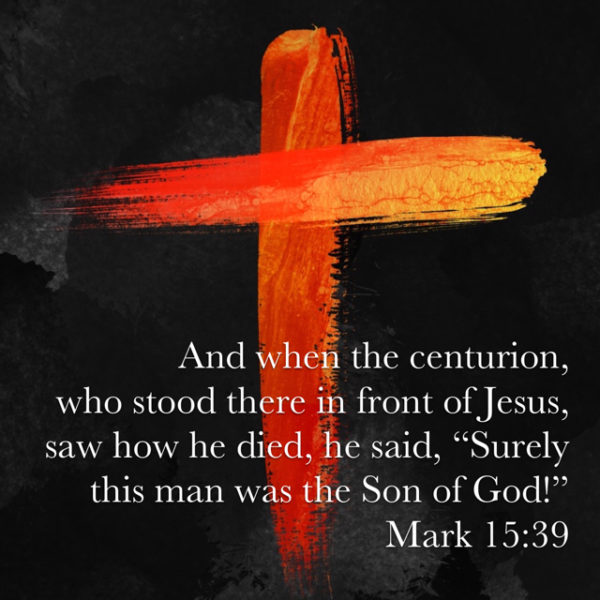
Message from March 16, 2014.

Message from March 23, 2014.